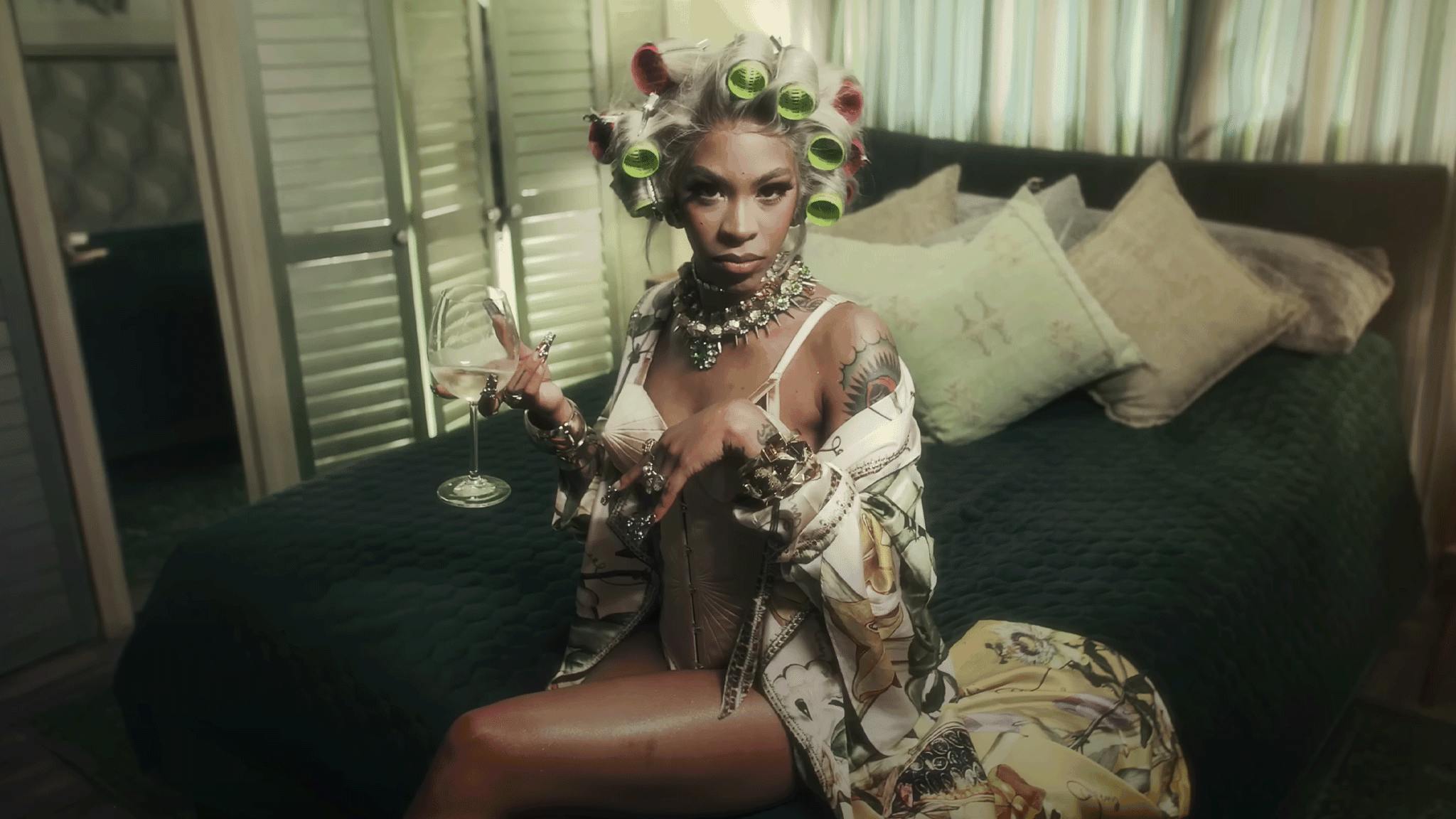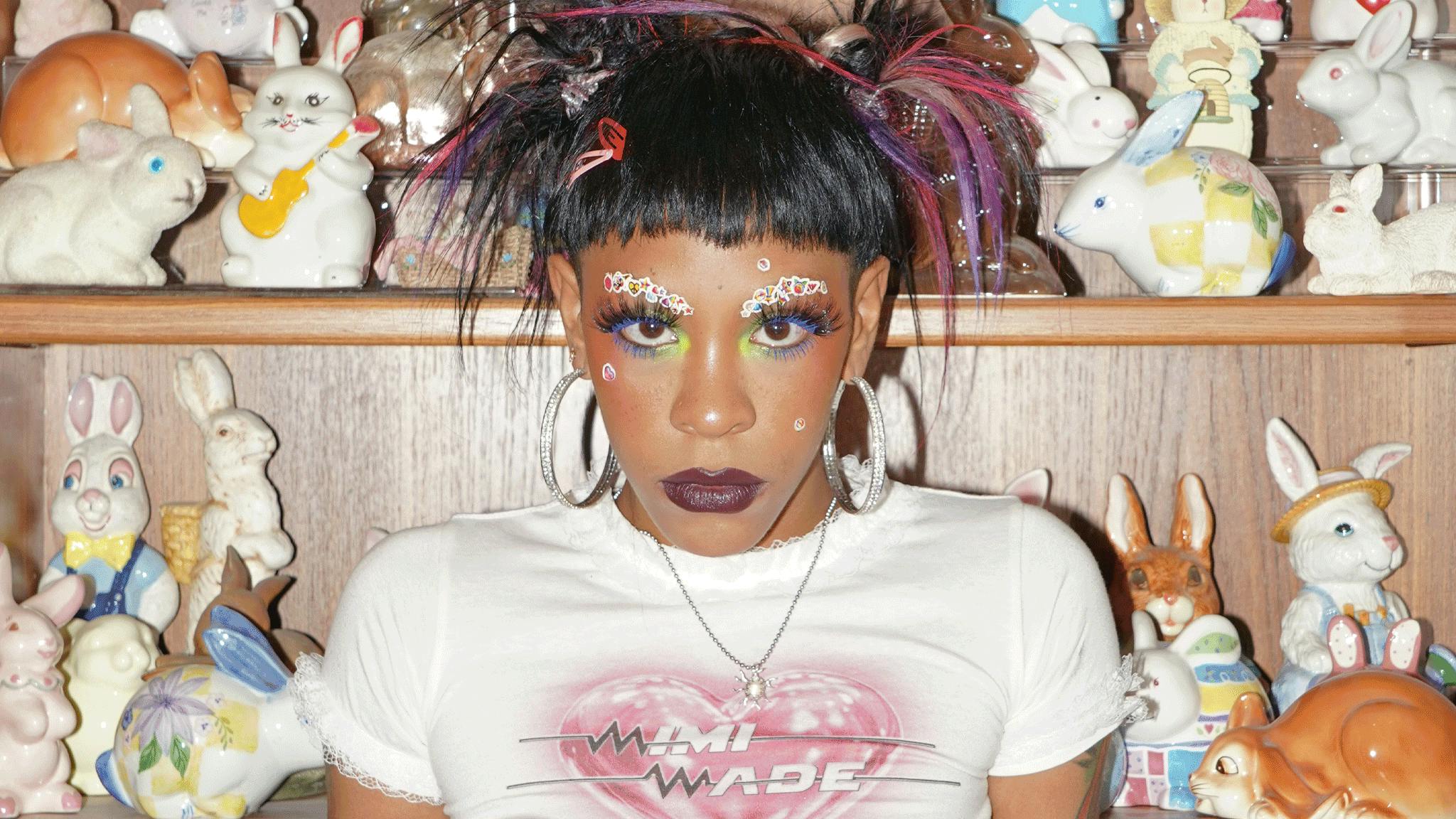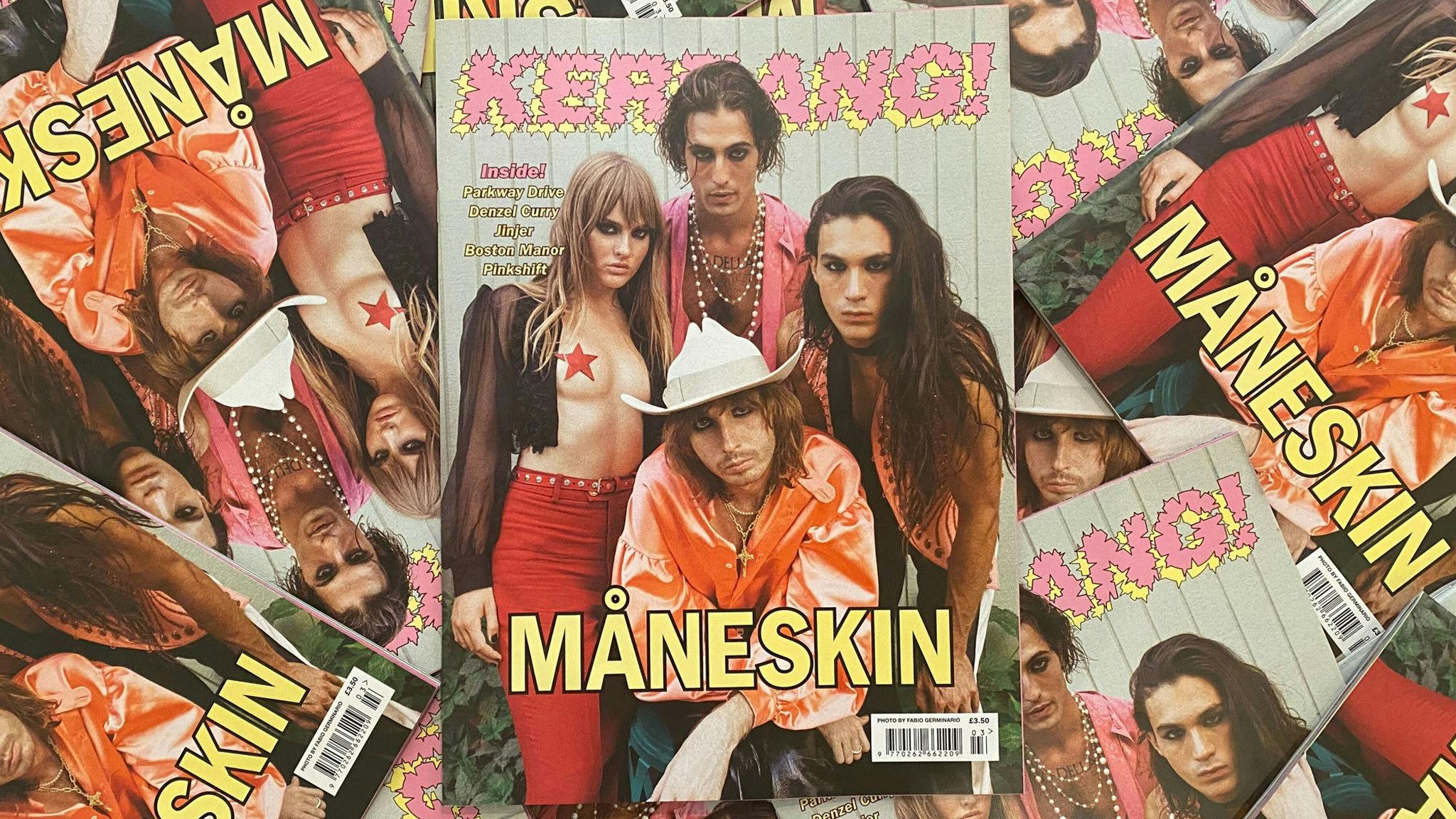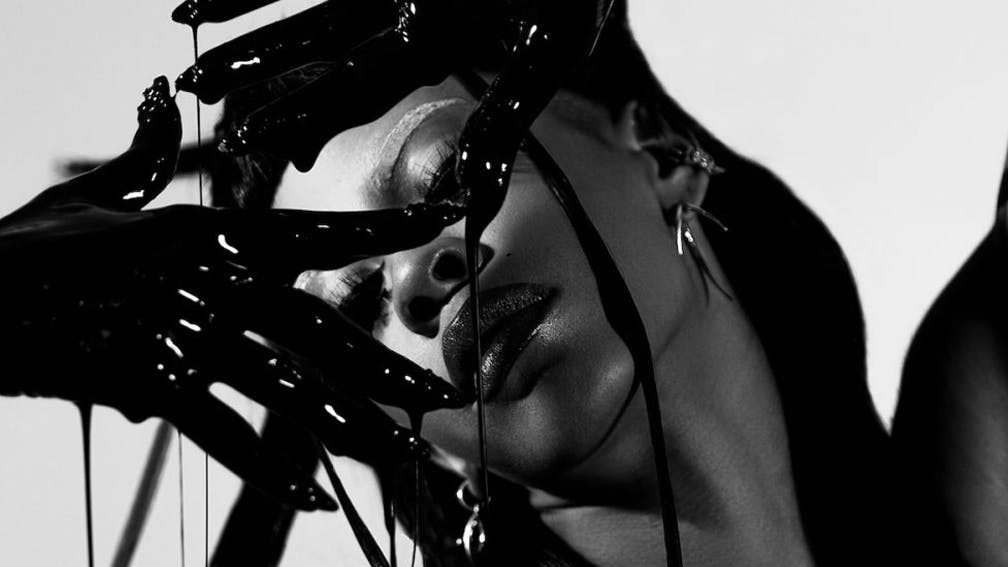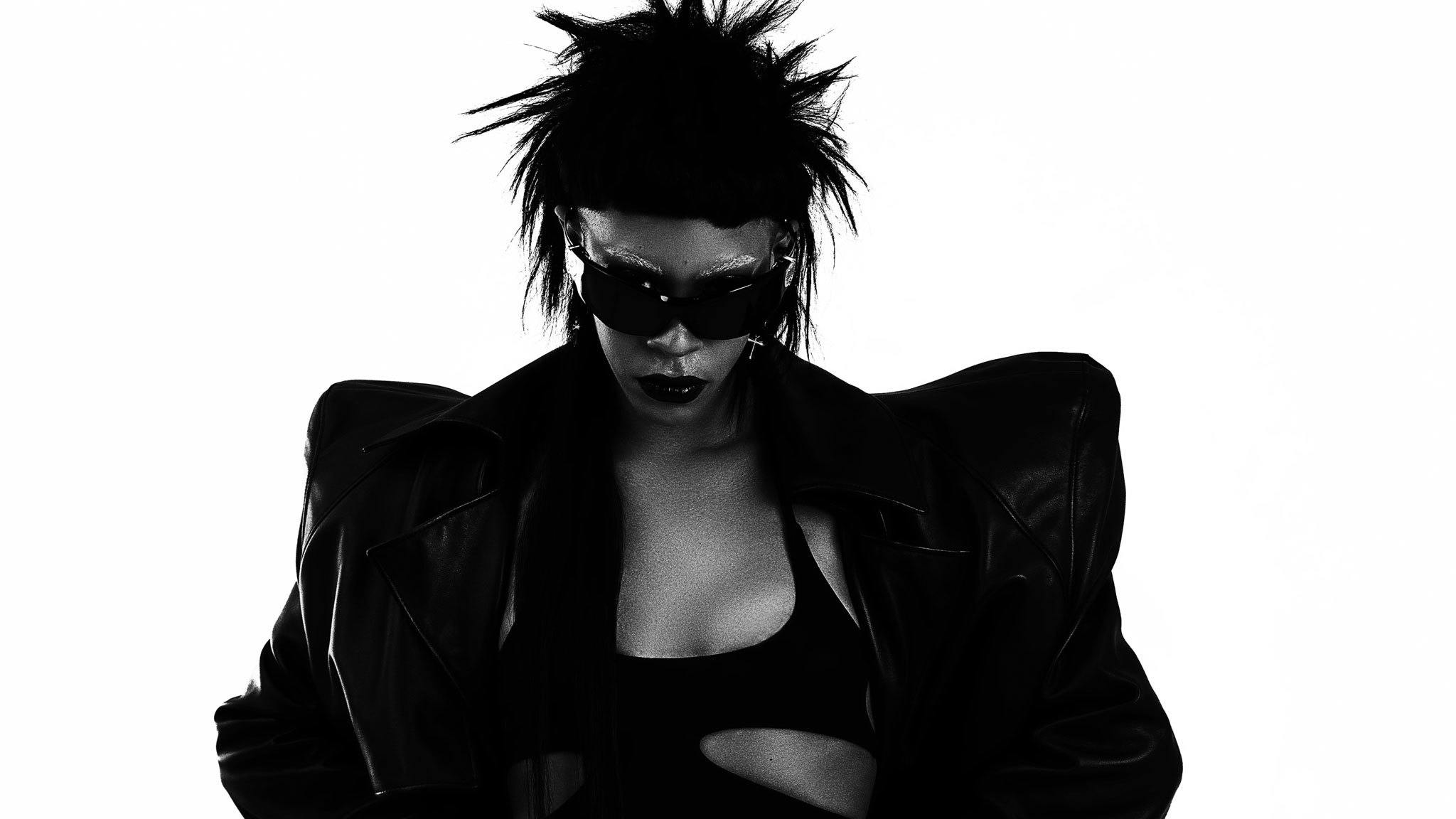Most 17-year-olds aren’t sure of who they are yet. Rico Nasty was the same. It was at that age that she released her debut mixtape, Summer’s Eve, in 2014, while still trying to find her own sense of identity as a person, let alone an artist. She found an answer in Nicki Minaj, the artist who inspired her to become a rapper in the first place, and someone she describes as “a creative genius”. Anyone clued up on their Nicki trivia may know that throughout her career, she has adopted a series of alter egos, most famously Roman Zolanski, a twin brother figure who she becomes when she's angry.
Rico did the same thing. She developed the character of Tacobella to represent herself at her softest, while her Trap Lavigne persona is a fishnet-wearing, hard-as-nails punk. Eventually, as she became more sure of her own identity, as Rico, even just as Maria, she outgrew those alter egos. “I was trying to compartmentalise myself,” she reflects. “Really, it’s like, when I’m Maria, you can catch these hands, when I’m Tacobella, you can catch these hands. When I’m Rico, you can catch these hands. I don’t wake up and say, ‘I’m going to be Tacobella today.’ I’m just me.”
This compartmentalising and categorising, Rico reckons, helped her fans, more than anything, to understand her artistry. “I love to do super-soft music, then to do super-hard music,” she grins.
The vastness of her own genre-defying musical spectrum might have at one time been seen at confusing, but in 2022, where genres are cut up, rearranged and endlessly collaged, it’s better accepted that sometimes, music has no need for such definition. When she first signed a record deal, Rico was told that her music was ahead of its time. Whoever said that made a compelling point. “I treat genre like a bitch on the street,” she says. “I think genre deserves to get bent and broken. I don’t ever look at genre; I only look at vibes.”


